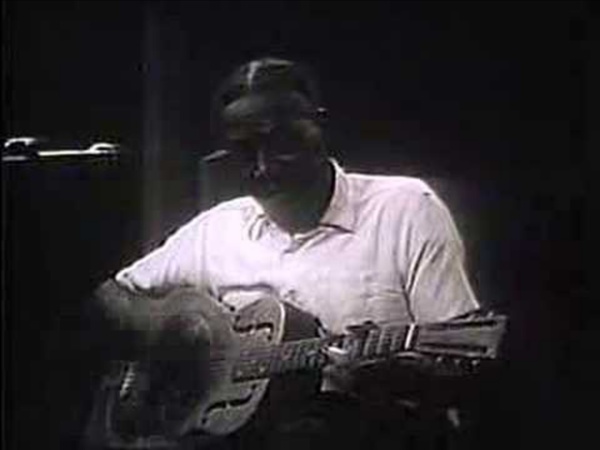



http://www.youtube.com/watch?v=NdgrQoZHnNY
Related: La revaloracion del cuerpo (Nietzsche)Blues Etimología[editar] La frase the blues hace referencia a los blue devils (diablos azules o espíritus caídos), la depresión y la tristeza. Una de las primeras referencias a the blues puede encontrarse en la farsa Blue Devils, a farce in one act (1798)[1] de George Colman. Son House Lyrics, Death Letter Blues Lyrics by Son House. From Martin Scorsese: Best of the Blues. Hey, I solemnly swear, Lord, I raise my right hand That I'm goin' get me a woman, you get you another man I solemnly swear, Lord, I raise my right hand That I'm goin' get me a woman, you get you another man I got a letter this morning, how do you reckon it read?
Un templo para ateos en el corazón de Londres La idea de construir un gran templo al ateísmo en el corazón financiero de la capital del Reino Unido ya ha generado una disputa entre prominentes ateos.El proyecto lo propuso el filósofo y escritor suizo Alain de Botton, que acaba de publicar el libro "Religión para Ateos" y quien asegura que ya cuenta con casi la mitad del equivalente a millón y medio de dólares para levantar el edificio.El templo está concebido como una estructura de más de 45 metros de altura, entre bancos internacionales y torres medievales en la City, el centro financiero de Londres, que evocará los más de 300 millones de años de vida en la Tierra. La mecánica del amor: ¿cómo sabían en los años 20 si una pareja tendría éxito o fracasaría? La naturaleza del amor, se ha creído casi desde siempre, es por esencia indomable, una potencia que sin explicación ni aviso toma a una persona y la convierte en su títere, su siervo, un guiñapo que obedece a mandamientos irracionales que lo único que persiguen es la satisfacción de un deseo, de una pasión. Y quizá por esto mismo, en la historia no han sido pocos los esfuerzos por intentar controlar al amor, lo mismo con métodos mágicos que por otros pretendidamente científicos y totalmente racionales. Entre estos destaca una serie de pruebas ideadas por Hugo Gernsback (inventor y escritor estadounidense nacido en Luxemburgo) en la década de 1920 y publicada en la revista Science and Invention y según las cuales sería posible determinar si un matrimonio fallaría o tendría éxito. Según Gernsback, con 4 exámenes sería posible saber si una pareja terminaría amándose hasta el final de sus días o si, por el contario, no se soportarían ni durante una corta temporada. [Smithsonian]
Aquellos 'sesenta' de la minifalda y la revolución de la moda Antonio Amaro Álvarez | Madrid | Actualizado el 06/02/2012 a las 11:41 horas Para invierno, para verano, para ella, para todas. En la pasarela y en la calle. Si la moda femenina tiene una deuda histórica esa es con la década de los sesenta y sobre todo con la minifalda.
Tatuaje del delantero Mauricio Pinilla - Fútbol Reglamento comentarios ETCE no se responsabiliza por el uso y tratamiento que los usuarios le den a la información publicada en este espacio de recomendaciones, pero aclara que busca ser la sombrilla de un espacio donde el equilibrio y la tolerancia sean el eje. En ese camino, disponemos de total libertad para eliminar los contenidos que: 1. Promuevan mensajes tipo spam. 2.
Canción de los Rolling Stones es muestra de cambios culturales En un auditorio solemne, lleno de hombres solemnes, con trajes también solemnes, se levantó una voz. Era la voz de un diputado la que atravesaba las risas, los murmullos y los silbidos en señal de protesta. Su queja ocurría en la Cámara de los Comunes, a mediados de los años sesenta, e iba dirigida contra los Rolling Stones. El solemne diputado insultaba a los miembros de la banda por ridiculizar a las madres del Reino Unido.
¿Por qué lo caro nos parece mejor? El efecto placebo también actúa cuando se trata de evaluar productos según su precio. Y eso acaban de demostrar con el vino investigadores de la Universidad de Bonn: si cuesta más, los usuarios lo califican mejor... aunque en verdad estén consumiendo uno más barato. No se debe a un capricho del consumidor o para mostrar categoría. Es un truco del sistema de recompensas del cerebro. Noticias - La importancia arqueológica de los Sex Pistols Noticias - Los punks británicos, tan críticos del jubileo hoy como antes #SomosTodosMacacos, bananas contra el racismo en el fútbol - BBC Mundo - Noticias